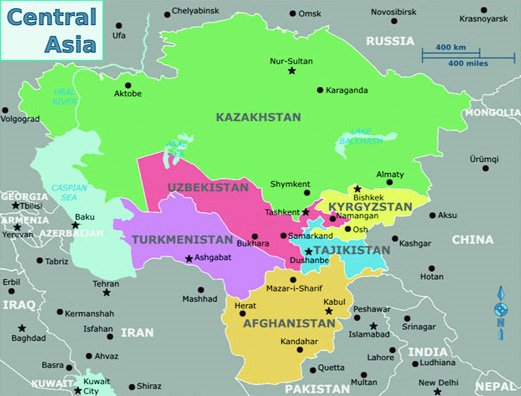
The summits held by Central Asian leaders with countries that have a strong interest in the region are called C5 + 1 ‘for short’. Since last year, regional leaders have met in this format with the US, China, Russia, the EU and the Gulf states, and on September 16-17 they received another guest. German Chancellor Olaf Scholz arrived in Central Asia with a strong business team. To better understand the importance of this visit, it is worth considering that Germany, the developer of the EU strategy in Central Asia, speaks on behalf of both itself and the EU countries when it comes to common interests, ‘Yeni Safak’ writes.
Along with the traditional players mentioned in the context of the C5+1 summits, such as the US, China, Russia, the EU, countries such as India and Japan also show a strong interest in the region. The leaders of the Central Asian countries (C5) were often invited outside the region, and sometimes the leader of the respective state personally visited the region, demonstrating increased interest and competition.
In addition to the C5 + 1 format, we also see that British Foreign Secretary David Cameron and French leader Emmanuel Macron alternately visit the countries of the region and try to give new impetus to bilateral relations. It is known that every major power that shows interest in the region attaches importance to its geopolitical position, rich underground and surface resources, and transport routes.
It can be said that Scholz, who met with regional leaders at the Berlin C5 + 1 Germany summit in September 2023 and signed an agreement on strategic regional partnership as a result, focused on the implementation of joint projects during his visit to the region. The economy, energy and natural resources were identified as the main areas of cooperation.
As the Jamestown Foundation, an American think tank, has noted, the five Central Asian countries and the vast region encompassing Afghanistan and Mongolia have the world's largest reserves of rare earth minerals. This is thus a new "Great Game" arena, and competition around the Central Asian countries is being declared the "Great Game of the 21st century."
In these days, when ‘hard/military power’ is once again in demand, it remains important to increase the appeal of ‘soft power,’ especially among young people. Although young people from Central Asia mainly study in Russia due to geographical proximity, cost and language factors, European and Western educational institutions have not lost their appeal in the countries of the region. Factors contributing to this include the opening of partner universities and their branches, as well as serious steps taken in language teaching.
Thus, the countries of the region, which maintain close relations with Russia within the CIS and the Eurasian Economic Union, in the face of sanctions imposed by the West against Russia, cannot be on bad terms with their northern neighbor, nor can they refuse current and future investments from the West.
The leaders of Central Asia, which is once again in the spotlight of the great powers, intend to get the maximum benefit not as part of the newly unfolding game, but as playmakers. In this regard, regional leaders, guided by pragmatism, continue their multilateral policy, attend summits and want to maintain balance, entering new economic spaces, such as BRICS.
read more in our Telegram-channel https://t.me/The_International_Affairs

 11:21 22.09.2024 •
11:21 22.09.2024 •






















